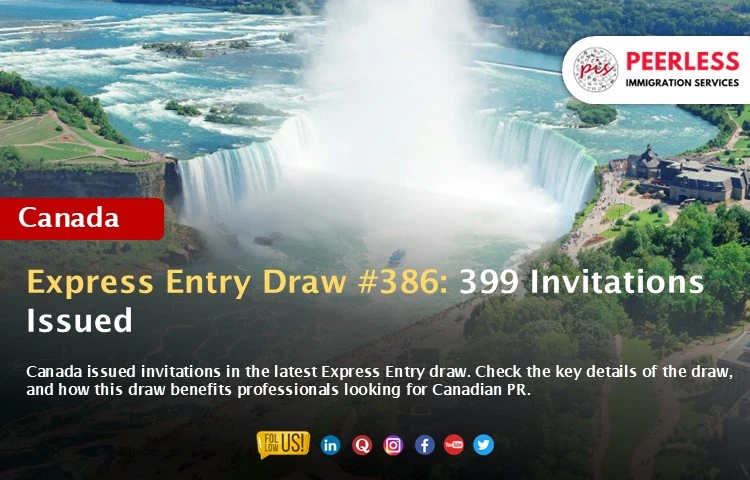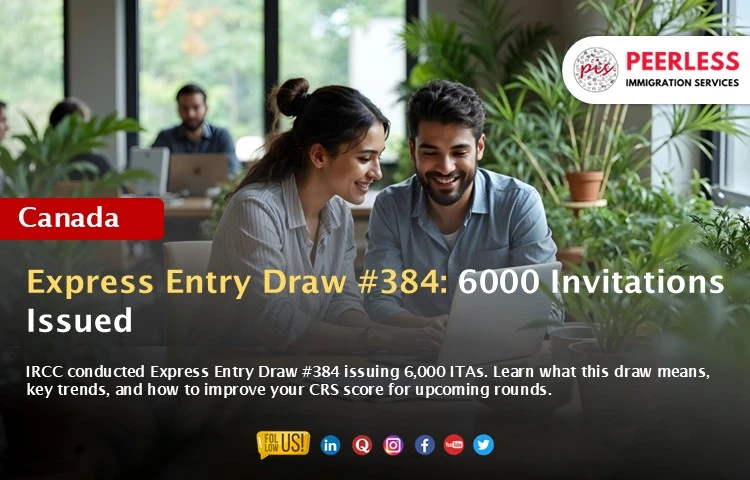
Major Factors Behind Canada Tourist Visa Rejections
Canada is a stunning nation that draws a large number of tourists and visitors every year. It’s no wonder that so many people want to visit Canada with its breathtaking scenery, exciting cities, and varied culture. However, because applications are closely scrutinized, getting a visitor or tourist visa to Canada can occasionally be a difficult procedure. In this article, we will examine some of the typical grounds for denial of Canada visitor/tourist visas, illuminating crucial aspects that applicants ought to consider.
Insufficient documentation:
The absence of appropriate documentation is one of the main causes of visa denials. It is crucial to submit all the necessary paperwork when applying for a visitor or tourist visa to Canada, including a current passport, proof of travel purpose (such as an invitation letter or travel itinerary), documentation of financial stability to cover costs, and proof of ties to the country of residence (evidence of employment, family ties, property ownership, etc.). A visa application may be rejected if the required documents are not submitted or if inaccurate or partial information is provided.
Inadequate financial support:
The key to obtaining a visa is proving that you have the means to support yourself throughout your visit. The Canadian immigration authorities examine a candidate’s financial status to make sure they can support their travel and living costs on their own without requesting assistance from the government. If the applicant does not offer persuasive proof of their financial capability or if the financial documents, they have submitted are deemed insufficient or fraudulent, they risk rejection.
Lack of strong ties to the home country:
The applicant’s ties to their native country are a crucial consideration in the visa decision-making process. Authorities want to make sure that anyone entering Canada as a tourist or visitor has compelling reasons to leave once their stay is permitted. These bonds can be shown by things like a steady job, close family ties, home ownership, and other responsibilities. A visa application may be turned down if the applicant cannot demonstrate significant ties to their home country due to worries about possible overstays or unauthorized employment in Canada
Incomplete travel plans or unclear intentions:
It is essential to have a clear trip itinerary when requesting a visiting or tourist visa. This entails offering a thorough schedule, lodging options, and knowledge of the visit’s objective. Lack of clarity regarding the length of the stay, travel arrangements, or a lack of information regarding the intended activities in Canada may cast doubt on the applicant’s motivations and lead to a visa denial.
Previous immigration or travel history:
The immigration or travel history of an applicant might be a big factor in visa determinations. Immigration authorities may be concerned if a person has a history of visa infractions, overstays, or prior rejections. A candidate’s current visa application may suffer if they have previously been refused admission or deported from Canada or another nation. Authorities consider these variables when determining the likelihood that a candidate will violate the terms of their visa.
A visitor/tourist visa for Canada demands thorough planning and attention to detail. Applicants can improve their chances of having their application accepted by being aware of the typical causes of rejection. It is essential to present full and legitimate documentation, show that you have the money you need, have strong ties to your home country, have a clear travel itinerary, and have a good immigration and travel history. To successfully navigate the visa application procedure, it might also be helpful to seek professional counsel or direction from immigration professionals.
Give us a call!
Feel free to reach out to us for answers to your questions. You can contact our expert at +91-8595010514 or send an email to info@peerlessimmigration.com















